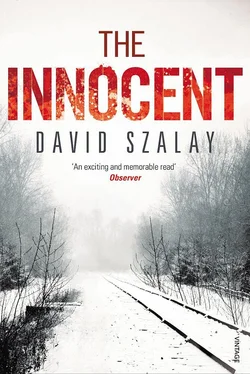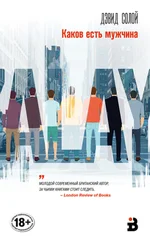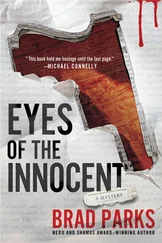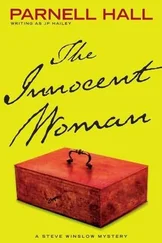‘No.’
‘Well she seems quite taken with you.’
‘Don’t be silly.’
You snatched the novel from the table and started to read a passage aloud. You had obviously prepared this performance – selected the passage, marked it with a piece of paper. It was a love scene, somewhat trite. ‘Stop it,’ I said. Though you were laughing, you had tears in your eyes, and suddenly I understood that you were taking this entirely seriously. You seriously thought that something had happened. I was shocked. ‘Irina,’ I said. You had found a second passage, similar to the first. You were halfway through it when you threw the novel at my head. It hit me over the eye. You threw it with all your strength and it hurt. ‘Why did you do that?’ I shouted. ‘Have you gone mad? It’s just a book. It means nothing. I’ve helped her out. She wanted to thank me. So what? Maybe she does like me. I don’t know. Morozov likes you. I don’t mind. I’ve seen you flirting with him. It’s nothing serious. If I had something to hide, why would I have left that book lying around here?’ And it was true about Morozov. You did flirt with him. ‘Irina,’ I said. ‘This is insane. She’s lonely. She has no one else to turn to … What should I do?’
Your cigarettes were on the table. You took one and put it in your mouth. Your hands were shaking. The first match didn’t work – the phosphorus smeared off like paste when you tried to strike it. When the second did the same, you threw them onto the floor. ‘Stop seeing her,’ you said. ‘Stop seeing her.’
I picked up the matches and lit one for you. ‘Okay,’ I said. ‘I’ll stop seeing her.’
HE IS LOOKING through the bookshelves that entirely fill one wall of the living room. When he has looked, spine by spine, through the whole expanse, he stands there with a puzzled expression on his face. Suddenly he starts to take down the volumes of the Great Soviet Encyclopaedia , first edition (1947). The thing he is looking for is hidden somewhere there … He finds it. It is a sort of exercise book, tied shut with a strip of blue satin, the meticulous letters on the front faded almost to invisibility. Nadezhda Filippovna Podlubnaya, 1932 .
It started as a Komsomol self-improvement exercise. This is obvious from the first entry, which was written in December 1932, when she was fifteen.
Self-study
All over the Union and in countries all over the world the annual balance sheet is being drawn up. In many cities, especially in Moscow, conferences and congresses are meeting in order to review the work of the year. We too must review what we have achieved this year, especially in our political and psychological development. We must draw up our own balance sheets .
I have had some difficult times this year but I don’t regret it. The struggle has taught me a lot. It has helped me work out a new approach to life. I think this year I have arrived at a new stage of my consciousness. I have come to see my work as an integral part of my existence, as indispensable to me as the bread I need in order to live. Or even more important. It is what makes me a useful person, it is what justifies my existence. As Comrade Stalin has said, work is a matter of honour, glory, valour and heroism. I have taught myself to understand this, and now that I have understood it I will put it into practice in my life. So I am optimistic about the future .
I have to be more systematic. Sometimes I am lazy. I have to try and develop a more materialistic worldview and become more politically oriented. I get downhearted sometimes. I need to learn to have more trust in my own strength and will power. In short, I need to work on my psychology .
Positive and negative examples
A positive example is my mother. She understands the need to rework herself and learn to develop a proletarian psychology. She attends evening school and performs voluntary social work, for which she has even received awards. In the summer she went to a summer camp to cut peat. Though it was difficult, she stayed for a whole month until the victorious end. As Gorky says: ‘Life is a struggle!’ I admire her more than anyone else .
A negative example would be my uncle Fyodr. He is of no use to anyone and completely superfluous. He has left the old behind in many ways, but not altogether. But in the material sense definitely. Yet he hasn’t been able to join the new. We have to help him with many things. We must force him to work on himself. His character is that of an old man, although he’s not really very old .
Other negative examples would be the Rodins. These people who live in our flat are all from a village, an extremely low milieu. For instance Vaska is only twenty and he is often dead drunk. On drunken legs he taps out a dance. He forgets that it’s time to go to work and that his comrades are waiting for him, that the driver is waiting with the truck (he’s a loader). He has emptied a whole bottle of vodka, he couldn’t care less. But tomorrow? Tomorrow when he loses his job, and his bread? And when they won’t give him work, where will he go? Perhaps he’ll steal. Or he’ll literally die of hunger. Without a home, he’ll freeze to death. He is someone who it will be very difficult, if not impossible, to put on his feet .
Her father’s name was Podlubny. He was a Ukrainian kulak, who prospered under the NEP. In 1929 the family were dekulakised, and Podlubny was sent to Arkhangelsk for a period of internal exile. Nadezhda and her mother, Yefrosinya, obtained false papers showing them to be of proletarian origin and settled in Moscow. Her mother found work as a janitor. In spite of speaking only Ukrainian and having to learn Russian as she went (when Aleksandr knew her there was no trace of this in her voice, she spoke like an educated Muscovite), she soon excelled in school. She joined the Komsomol, where she also excelled.
Living with a secret past was stressful and frightening and for the first few years her journal was full of examples of this. One summer, her Komsomol brigade organised a work trip to a kolkhoz near Moscow. She was one of the leaders of this initiative, and suggested that everyone get up at sunrise and work until late morning, then sleep for a few hours. Some of the others did not want to get up so early, until they understood how unpleasant it was to be in the fields in the middle of the day. Then they wondered why she was so familiar with farm life. From then on she pretended not to know what she was doing. The following winter, she and her mother met ‘Vova and Itta’, former neighbours from their village, on a street in Moscow. They had fled the famine in the Ukraine, and Yefrosinya helped them find shelter in the city. Nadezhda, however, shunned them, worried that they would tell people who she was.
As a teenager, she observed people intently – the secretary of the Komsomol brigade, some of her teachers and school-friends – and imitated them, trying to understand how she should look, speak, move, what opinions she should hold, and how she should express them.
I asked the leader of the political circle: what should I read first, Marx or Lenin? She said I should read both at the same time. That is very significant. She advised me to work with a pencil. In Marx, in his philosophy, he says so many obscure things, so much in it is difficult to understand, there are such depths, that you read it for the second and third time and still discover the significance of something new. You don’t see everything at once. Today, in my present state of development, I understand only one part, the easiest and most obvious part. Tomorrow I will understand something new. I have also been reading novels. For instance, I’ve just read The Life of Klim Samgin by Gorky .
Читать дальше












